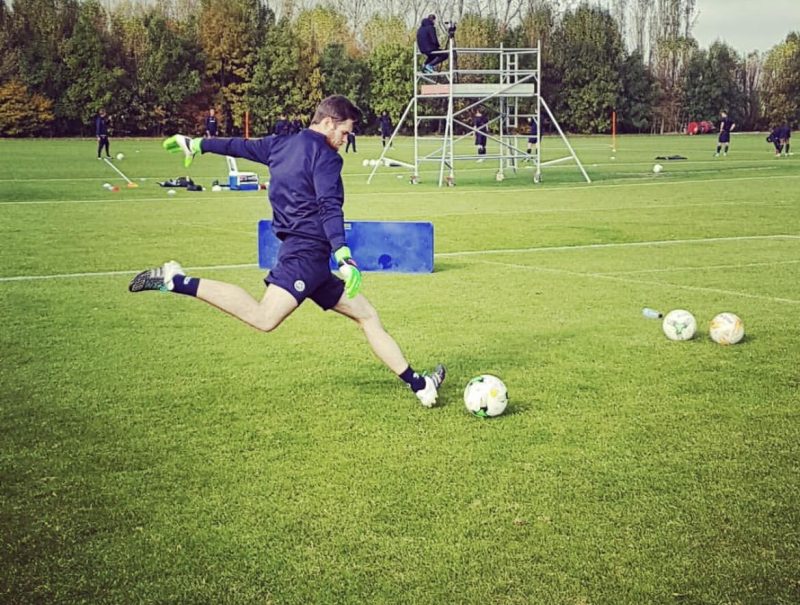Former academy footballers are calling on academies to offer more support to players they release.
In 2020, Jeremy Wisten, 18, killed himself after he was released by Manchester City.
The subsequent inquest heard Jeremy felt he didn’t get the right support with his father saying one of the main factors was City’s lack of support.
City’s academy director Jason Wilcox told the inquest Jeremy had trials at numerous other clubs, and that he had undergone mental health screening at the club.
Now more former academy footballers have called for support from clubs after they are released.
Conor Hudnott, 25, spent six years with a London club before being released.
Hudnott said: “I found it really hard to find anything I liked doing which to this day is still my feeling, and I’ve been in and out of different jobs which has been tough.”
In 2022, the Daily Mail reported 97% of elite academy football players now aged 21-26 failed to make a single Premier League appearance with 70% not gaining a professional contract.
However, those that sign an apprenticeship or professional contract with a team in the UK become members of The PFA.
The PFA offer supporting services to players and they helped Hudnott enrol on to a personal training course.
Hudnott feels the PFA plays an important role in the futures of released players but stressed more can be done.
Hudnott said: “The PFA do a lot but I feel they can do more when being released.
“A simple phone call can change your mindset towards what you do next.”
Ben Wright, Director of External Affairs at the PFA said: “As the player’s union we provide a range of services that are accessible by all members that are designed to support them at all stages of their career.
“We always hope that players have been able to have a happy and satisfying career, but we know that many will experience wellbeing and health issues, perhaps after their retirement, that we are able to help with through support and financial help.
“The key message we always try to get over to members is to use their time in the game to think about what’s next.
“We provide financial and administrative help to players whatever path they choose, whether that’s funding courses so they can get their badges or contributing towards academic or vocational courses.
“That engagement starts before a player even turns professional with our work with academy players and their families.
“There are many positive stories of players who have benefited from PFA support and who feel it has had a real impact on their lives, but of course it is important that all of us in the game are here for those who have served it.”
Ben Beckles, 26, was released by Queens Park Rangers at the end of his apprenticeship and supports the call for more to be done to help young players let go by clubs.
Beckles said: “I think more support is needed and whilst I was one of the lucky ones that managed to get on with a positive, fulfilling life away from football, there are an awful lot of players that go down a different path.”
The former Sports Minister Tracey Crouch reviewed the FA’s mental health support to released academy players in 2021.
Crouch suggested football stakeholders should devise a comprehensive player welfare system to support players exiting the game at academy level.
One former academy player said: “Clubs should set up direct programmes straight into apprenticeships to help support players released.”
Recently, Crystal Palace have become the first club to offer an aftercare programme for released players.
The three year programme will focus on re-engaging with former players of the club to show them other routes outside of football.
You can read more sport stories here.





Join the discussion